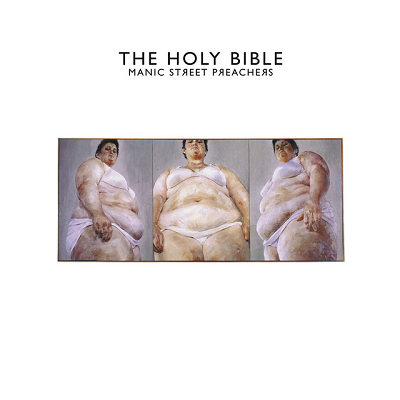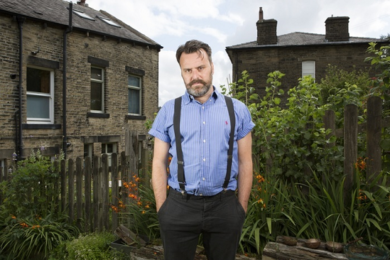6. Manic Street PreachersThe Holy Bible

The notion that the mid-1990s was a sunny time of Britpop knees-ups and New Labour is just a revisionist and reductive history, pure fiction. The Tories had been in power for my entire life and had pushed through all sorts of restrictive measures. It’s easy to forget John Major was PM for seven years; only Thatcher and Blair have served longer, post-war.
For the first half of the decade the Manics were my band, and their rise from their New Art Riot EP in 1990 to this, their career pinnacle, in late 1994 perfectly coincided with the second half of my crucial teenage years. I can now finally admit that deep down inside I perhaps knew they weren’t a great band and when Melody Maker said quite early on that “50% of the band are as ham-fisted as a Dewhursts window display” I laughed and agreed.
But the Manics had ambition, ideas and made an effort. They were utterly non-cosmopolitan in a way that Blur and Suede weren’t – and they had Richey Edwards, who always looked beautiful and gave great, info-packed interviews, which were more important to me than hearing about the mastery of the twelve-bar blues. I know I’m not the only novelist who still cites them as a key influence.
The Holy Bible was released two weeks before I moved south, into a hall of residence near Luton airport. It was the only university that would have me; a hundred others had quite emphatically turned me down. So in September 1994 I dived head-first into the Manics’ musical pit of despair, mainly by drinking Special Brew and reading a heady combination of Andrea Dworkin and Charles Bukowski in my little room during long autumnal nights in an alien landscape. The sound matched the town: restrictive, shadowy, and with a strong occultist undertow. Proper mental health stuff, though it did help me make new friends too.
London was thirty long miles away and I made it my ambition to do what the Manics themselves had done, which was to trojan horse my way into the twin citadels of music and literature. A couple of years later I was staff writer at Melody Maker, despite not fully grasping what apostrophes were for, and embarked upon a three-year adventure that took quite a while to recover from.
I think the music business gave me PTSD actually.


